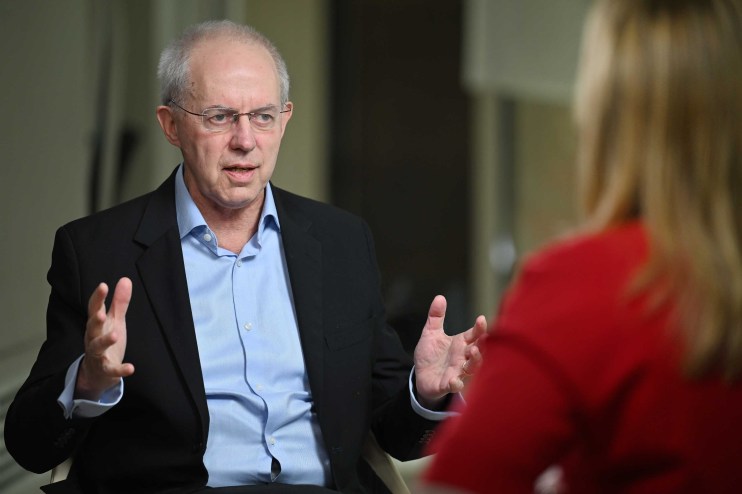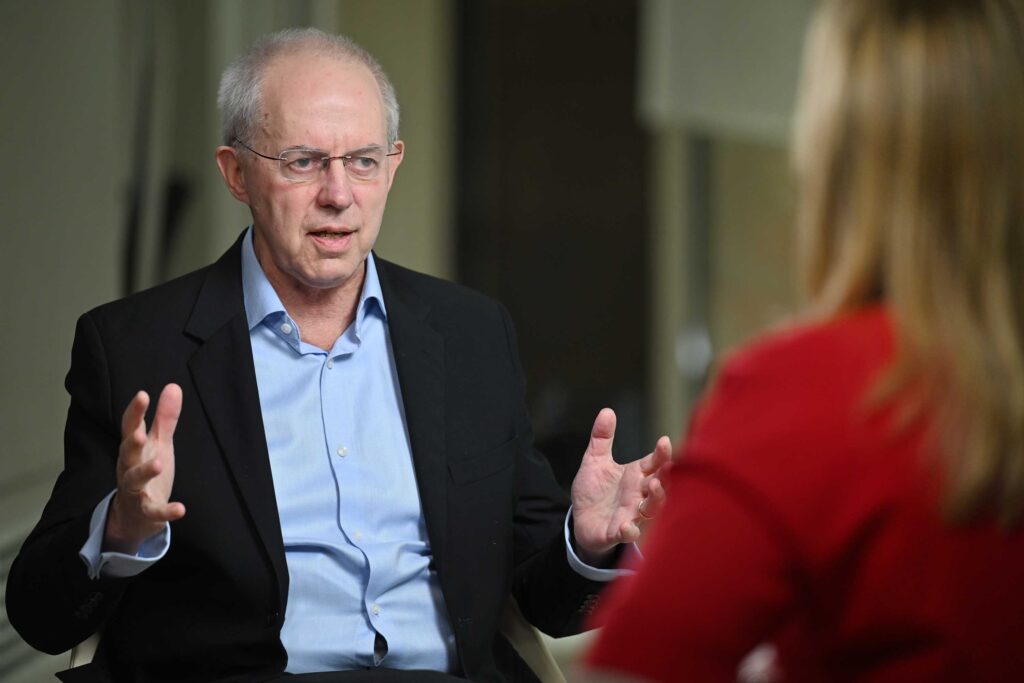
Former archbishop of Canterbury Justin Welby said he forgives serial abuser John Smyth as he repeated an apology to victims and told of the “deep sense of personal failure” he feels about the handling of allegations.
The former most senior bishop in the Church of England, who resigned in November and stepped down officially in January, said he had “not really thought it through enough, to be honest” when he initially declined to quit last year.
The Makin report into Smyth – thought to be the most prolific abuser associated with the Church – concluded Welby did not adequately follow up on reports about the Christian camp leader and barrister.
It said Smyth might have been brought to justice had Welby formally reported allegations to police in 2013.
Welby initially said he would not resign over the report and remained in post for a further five days before announcing he would quit.
In his first interview since his resignation, he told the BBC’s Sunday With Laura Kuenssberg programme: “What changed my mind was having been caught by the report being leaked and not really thought it through enough, to be honest.
“Over that weekend, as I read it and reread it and as I reflected on the horrible suffering of the survivors which had been, as many of them said, more than doubled by the institutional Church’s failure to respond adequately, it increasingly became clear to me that I needed to resign.”
Elsewhere in the interview, he indicated he forgives Smyth, who is said to have subjected as many as 130 boys and young men to traumatic abuse across five decades in three different countries in the UK and Africa.
“Yes, I think if he was alive and I saw him,” he said when asked if he forgives the now-dead clergyman.
“But it’s not, it’s not me he has abused. He’s abused the victims and survivors. So, whether I forgive or not is, to a large extent, irrelevant.”
Asked if he wanted forgiveness from Smyth’s victims, Welby said: “Obviously, but it’s not about me. When we talk about safeguarding, the centre of it is the victims and survivors.”
He said he would never demand forgiveness from survivors as that is “their sovereign, absolute individual choice”.
Repeating an apology to abuse victims, Welby said: “Just for the avoidance of doubt, I am utterly sorry and feel a deep sense of personal failure both for the victims of Smyth not being picked up sufficiently after 2017 when we knew the extent of it, and for my own personal failures.”
A victim of Smyth, known only as Graham, told the BBC “what the Church has put me through (since coming forward with abuse allegations) makes the historic abuse pale into insignificance”.
He said trying to get answers and support had been “the most extraordinary, traumatic journey”.
Welby said he had not been “sufficiently pushy in a way that I would have been a few years later”, insisting the first he heard of Smyth’s offences was in August of 2013.
“I’d been in post 11 weeks and safeguarding had been the crisis I hadn’t foreseen. I didn’t realise how bad it was.”
He said he had been overwhelmed by the sheer scale of the abuse problem, saying while this was not an excuse, it was a reason he had not prioritised the Smyth case and admitted: “The reality is I got it wrong.”
Graham said Welby was “scrabbling around for explanation” and that the Church remains overwhelmed by abuse cases and is no better at dealing with abuse.
Asked if would ever forgive Welby, Graham said: “Not if he continues to blank us and refuses to tell us the truth.”
Welby also told how thinking back to his final speech in the House of Lords weeks after announcing his resignation causes him to “wince”.
Critics had accused Welby of making light of serious safeguarding failures in the address after his references to a 14th century beheading drew laughter from the Lords benches and he suggested “if you pity anyone, pity my poor diary secretary” who had seen weeks and months of work “disappear in a puff of a resignation announcement”.
He said on Sunday that he “wasn’t in a good space at the time” and should not have given the valedictory speech at all.
He added: “It’s one of those moments where, when I think of it, I just wince. It was entirely wrong and entirely inexcusable.”
Asked if he thought he had been “cancelled”, Welby said: “We won’t know that for 30 or 40 years, and I’ll be dead by that time. I don’t know. I can’t answer that question. You’d have to ask others.
“I know that I let God down, I let people down.”
Home Secretary Yvette Cooper said she finds “it very difficult to forgive terrible criminals”, when asked about Welby saying he forgives Smyth.
Asked if a mandatory reporting law being in place would have led to the prosecution of Welby over the Smyth case, Cooper said: “It would depend on the details of a case, but if an organisation, institution or an individual is blocking the reporting of child abuse, and is effectively covering it up, then that does become a criminal offence.”
Bishop Joanne Grenfell, the Church’s lead safeguarding bishop, said Welby’s interview “will be a reminder to Smyth survivors of their awful abuse and its lifelong effects”.
She added: “I know they continue to be offered support and we are deeply sorry for the abuse they suffered.
“If anyone comes forward to the Church today with a concern, they will be heard and responded to carefully and compassionately by safeguarding professionals according to our clearly set out guidance.”
She insisted that “every member of the Church is responsible for a culture in which victims are heard, responded to well, and put first: there is never a place for covering up abuse”.
By Aine Fox, David Lynch, Claudia Savage and Rosie Shead, PA



